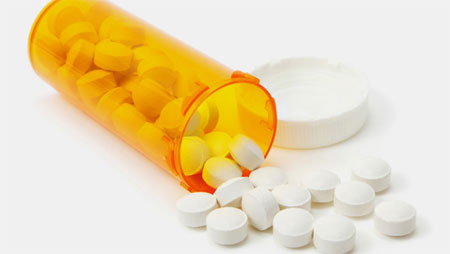More about antibiotic resistance
Posted on: 15/Jun/2016 1:07:05 PM

Antibiotic resistance is becoming very common these days. According to a report titled State of World Antibiotics 2015 written by the Centre for Disease Dynamics, Economics and Policy in New Delhi, India is the leading consumer of antibiotics. This report also says that antibiotic resistance will kill 300 million people by 2050.
So what exactly is antibiotic resistance? First of all, lets see why we use antibiotics. Antibiotics are consumed in order to check the growth of bacteria that cause various infections and illnesses in the human body. If these bacteria continue to grow despite the antibiotic consumption, the stage is referred to as antibiotic resistance. Increasing cases of drug resistant TB demarcate how rapidly the resistance is spreading. According to a leading doctor at the Department of Critical Care at Fortis, The more harmful bacteria are exposed to antibiotics, more they tend to resist the same.
Bacteria and various other microorganisms were there on this planet even before humans came into being. Therefore, bacteria is better adept to evolving to the conditions around them. The World Health Organisation or the WHO says, The evolution of resistant strains is a natural phenomenon that occurs when microorganisms replicate themselves erroneously or when resistant traits are exchanged between them.
A senior executive at DSM SinoChem Pharmaceuticals says, Antimicrobial resistance or AMR also called Antibiotic Resistance is a global threat today. AMR renders antibiotics ineffective, which means that they can no longer fight bacterial infections and ultimately become useless. Every year, AMR is responsible for the deaths of nearly 60,000 babies in India who are most vulnerable and unable to fight infections.
Antibiotic resistance is increasingly affecting doctors’ ability to treat people. There is a strong possibility that most bacteria will become resistant before the new antibiotics are developed and made fit for human consumption. It not only increases the costs involved in the treatments but also dramatically increases the death risk.
Says the doctor from Fortis, Antibiotic resistance has the power of transforming organ transplants into impossible jobs. Our immunity becomes weak when we undergo organ transplant, and that is the best time for harmful bacteria to catch hold and cause serious damage.
The WHO says, Patients with infections caused by drug-resistant bacteria are generally at increased risk of worse clinical outcomes and death, and consume more health-care resources than patients infected with the same bacteria that are not resistant.
So what aggravates antibiotic resistance? For one, it is the misuse of antibiotics by both patients and doctors. Say doctors, Cold and cough infections are majorly caused by viruses yet antibiotics are used as prime lines of treatment. Big global manufacturers prefer to set up local units in India and China to bypass laws and regulations, due to lack of effective enforcement, and also sell their antibiotics at cheap prices. Producing antibiotics generates loads of waste in the form of water, air and solids. If these waste streams are not managed responsibly, the pollutants can end up in our environment and reach our bodies through air and water.
Now, what can we dodo to prevent this situation. Say experts, The antibiotic dose is prescribed by the Doctor as per the disease and person`s body weight, hence should not be self adjusted. It is important to complete the entire course and not stop it midway to avoid developing resistance.
Here are a few things to keep in mind. There should be no indication of using antibiotics for viral infections including cough and cold unless the doctor prescribes it for a bacterial infection on top of a viral flu. Certain antibiotics are not safe in pregnancy, kidney or epilepsy patients and are best avoided.
If you are allergic to a particular antibiotic, avoid all drugs of that particular class. Carry a slip with the name of the medicine with you at all times and mention it to the Doctor prescribing the medication. A number of bacteria for community acquired infections like urine infection are becoming multi-drug resistant due to overuse and abuse of antibiotics. There are very few new molecules in the pipeline for newer antibiotics. Hence, we need to do our bit since we are facing the scenario of bad bugs, no drugs.
It is better to immunise using vaccine against preventable diseases. Food should be cooked properly as heat kills a lot of bacteria. This gets especially important for non-vegetarians as it is reported that poultry owners feed antibiotics to animals.







